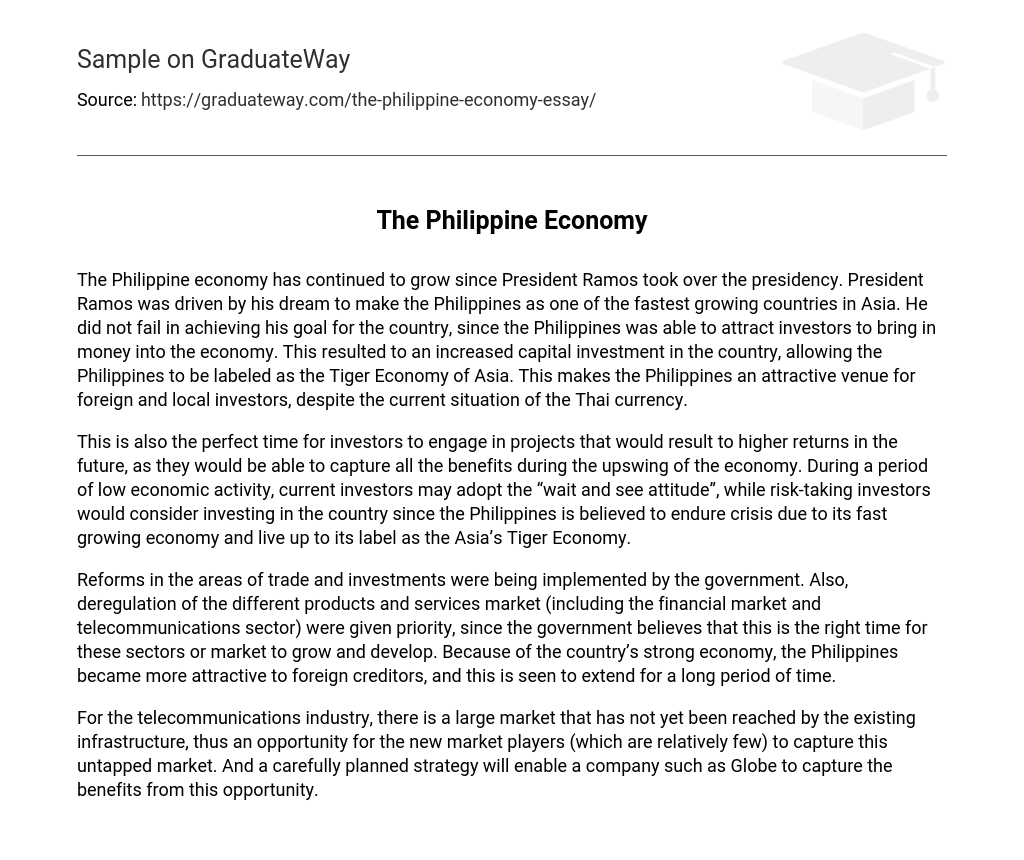The Philippine economy has continued to grow since President Ramos took over the presidency. President Ramos was driven by his dream to make the Philippines as one of the fastest growing countries in Asia. He did not fail in achieving his goal for the country, since the Philippines was able to attract investors to bring in money into the economy. This resulted to an increased capital investment in the country, allowing the Philippines to be labeled as the Tiger Economy of Asia. This makes the Philippines an attractive venue for foreign and local investors, despite the current situation of the Thai currency.
This is also the perfect time for investors to engage in projects that would result to higher returns in the future, as they would be able to capture all the benefits during the upswing of the economy. During a period of low economic activity, current investors may adopt the “wait and see attitude”, while risk-taking investors would consider investing in the country since the Philippines is believed to endure crisis due to its fast growing economy and live up to its label as the Asia’s Tiger Economy.
Reforms in the areas of trade and investments were being implemented by the government. Also, deregulation of the different products and services market (including the financial market and telecommunications sector) were given priority, since the government believes that this is the right time for these sectors or market to grow and develop. Because of the country’s strong economy, the Philippines became more attractive to foreign creditors, and this is seen to extend for a long period of time.
For the telecommunications industry, there is a large market that has not yet been reached by the existing infrastructure, thus an opportunity for the new market players (which are relatively few) to capture this untapped market. And a carefully planned strategy will enable a company such as Globe to capture the benefits from this opportunity.





